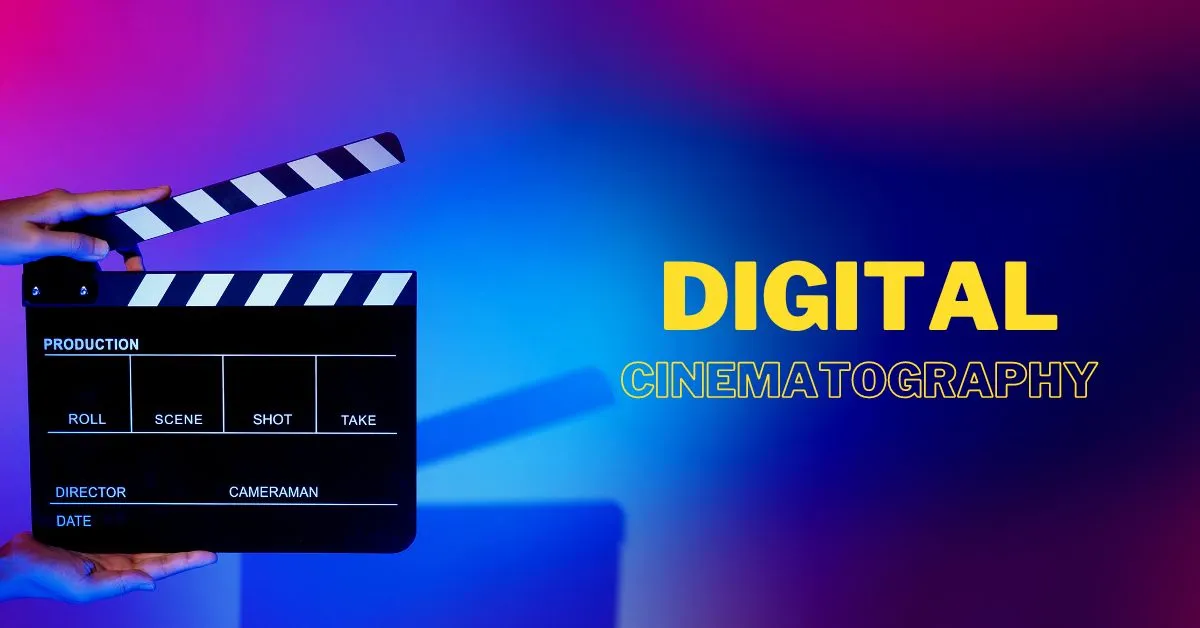Introduction
In the digital age, cinematography has evolved significantly, opening up new possibilities and
creative avenues for aspiring filmmakers. If you have a passion for storytelling through the
lens and want to excel in the world of digital cinematography, enrolling in a specialized course
can be a transformative step. In this blog post, we will delve into the details of a digital
cinematography course, including its course content, fees, and eligibility requirements. Let's
explore the fascinating world of capturing captivating visuals on the digital screen.
Course Details:
The digital
cinematography course is designed to equip students with the technical and
artistic skills needed to create visually stunning and emotionally engaging cinematic
experiences. The course curriculum encompasses a wide range of topics, including:
- Fundamentals of Cinematography: Understanding the core principles of
cinematography, such as composition, lighting, camera movement, and shot selection.
- Camera Technology and Equipment: Exploring the latest digital cameras,
lenses, and accessories used in professional filmmaking, and gaining hands-on experience
with industry-standard equipment.
- Lighting Techniques: Mastering the art of lighting, including natural and
artificial lighting setups, three-point lighting, color temperature, and creating different
moods and atmospheres.
- Shot Composition and Framing: Learning the techniques of framing shots,
creating visual depth, balancing visual elements, and effectively conveying the story
through composition.
- Color Grading and Post-Production: Understanding the process of color
correction and grading to enhance the visual aesthetics, mood, and storytelling aspects of
the footage. Additionally, gaining insights into the post-production workflow, including
editing, sound design, and visual effects.
- Visual Storytelling: Developing a deep understanding of visual
storytelling techniques, including shot sequencing, visual metaphors, and conveying emotions
through visual language.
- Genre-Specific Cinematography: Exploring the unique cinematographic
requirements of various genres, such as drama, action, documentary, and experimental films.
Industry Insights and Practical Projects: Learning from industry
professionals through guest lectures, workshops, and real-world assignments that simulate
professional filmmaking scenarios.
Fees:
The fees for a digital cinematography course can vary depending on factors such as the course
duration, institute reputation, and additional resources provided. It's essential to research
multiple institutions offering the course to compare fees and evaluate the value they provide.
Generally, the fees for a comprehensive digital cinematography course range from $2,000 to
$10,000, but this can vary significantly.
Eligibility Requirements:
To enroll in a digital cinematography course, most institutes have the following eligibility
criteria:
- Educational Qualifications: A high school diploma or equivalent is
typically required. Some institutes may have specific educational prerequisites, so it's
important to check with the institution offering the course.
- Passion for Filmmaking: A genuine interest in cinematography,
storytelling, and the filmmaking process is essential. Having a creative eye and a strong
desire to bring stories to life through visuals will be beneficial.
- Basic Technical Skills: While no prior experience is necessary, having a
basic understanding of photography, cameras, and filmmaking terminology can be advantageous.
- Language Proficiency: Proficiency in the language of instruction (usually
English) is often required to ensure effective communication and comprehension of the course
material.
Conclusion:
Embarking on a digital cinematography course can be an exciting and rewarding journey for
aspiring filmmakers. Through a comprehensive curriculum that covers the technical aspects of
cinematography, artistic expression, and industry insights, students can develop the skills
necessary to excel in the field of digital filmmaking. While the course fees may vary, it's
crucial to choose an institute that aligns with your goals and offers practical hands-on
experience.


